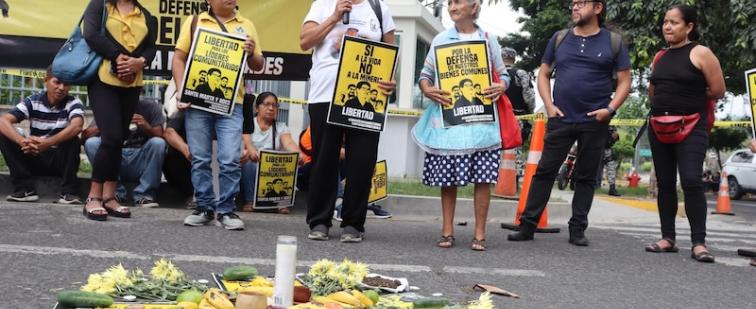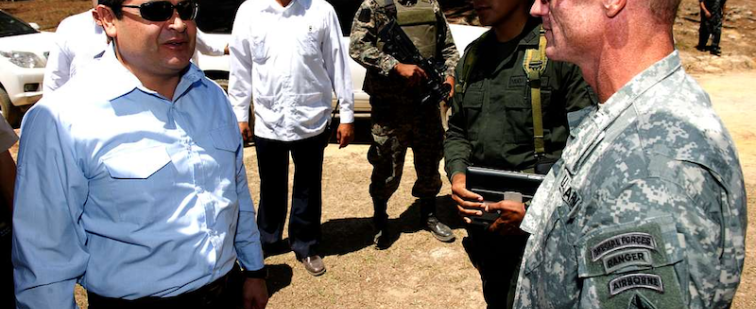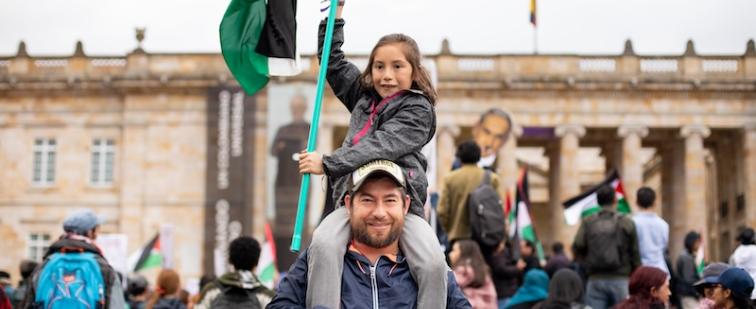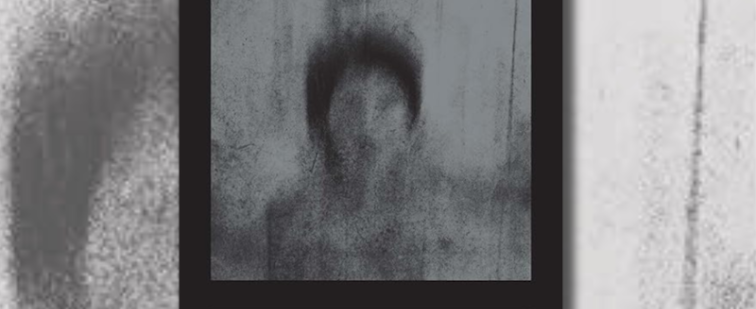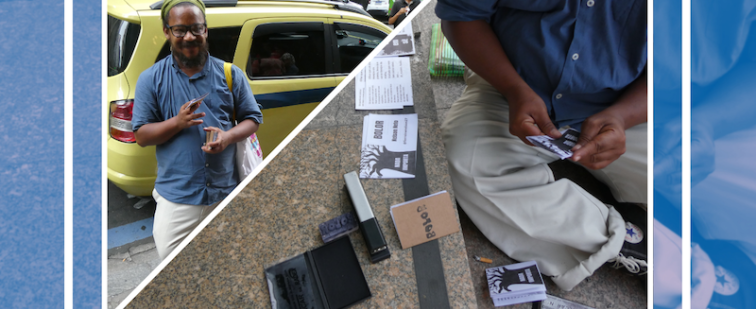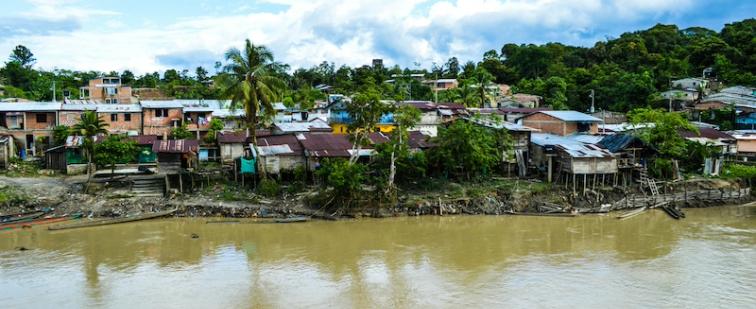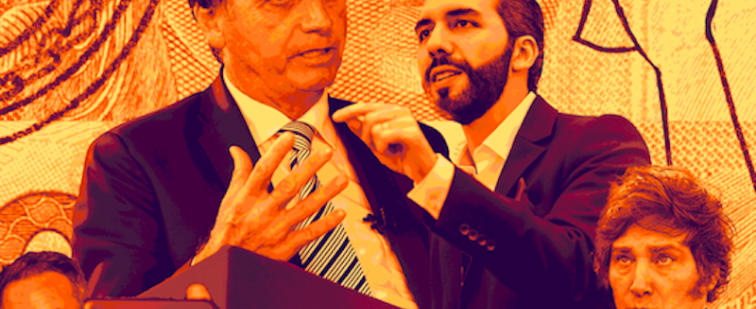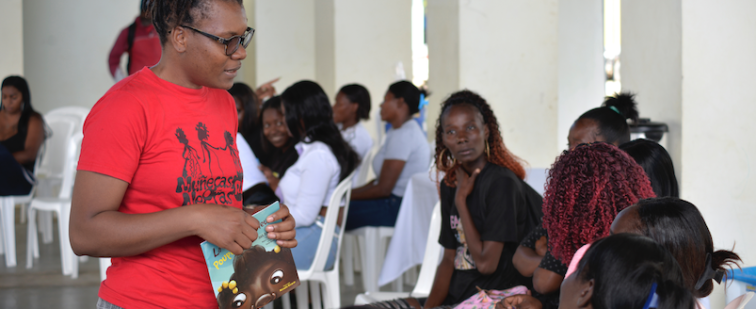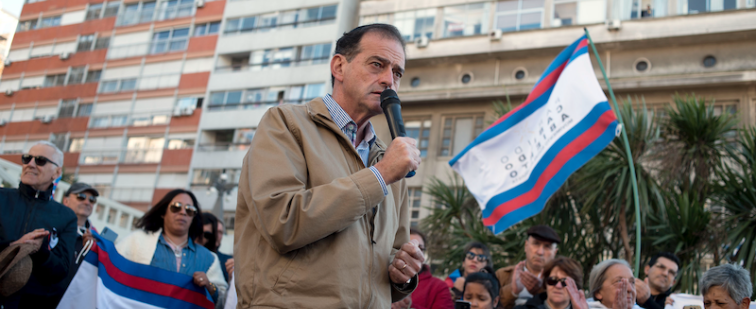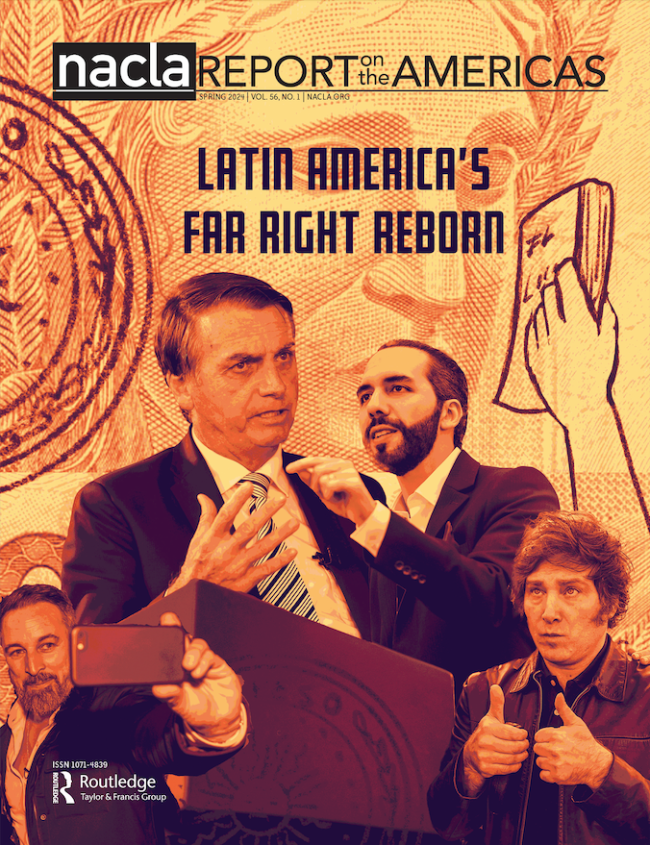Home
The announcement in mid-July of the near completion of an agreement to allow the U.S. military to lease space at seven Colombian bases prompted nearly unanimous rejection from South American governments. Now, other South American nations have begun to arm themselves, fueling fears of an arms race in a region that has not suffered a major inter-state conflict since the end of the Chaco War in 1935.
The crisis could finally push Mexico over the brink, into disaster. According to the country's weekly news magazine Proceso, "unemployment, increasingly costly public services, family debt, and desperation because of hunger" as a result of this crisis, "are causing increasingly violent reactions. The fed-up clamor in a wide array of the population, that is now becoming more evident, could soon become what, although some see it as far-fetched, many think is entirely possible: A social explosion."
The Honduran de facto regime suspended constitutional guarantees to civil liberties, including freedom of assembly and freedom of the press, for 45 days on the eve of mass protests planned to mark the three-month anniversary since the coup d'etat against President Manuel Zelaya took place. The regime has also shut down Radio Globo, a prominent independent media outlet that has covered anti-coup activities and that reportedly has a journalist inside the Brazilian embassy where Zelaya is staying, and TV station Channel 36.
In a bold move, the democratically elected president of Honduras Manuel Zelaya—ousted in a military coup in June—has returned to Tegucigalpa, entering the country in secret, traveling overland with a small group of advisers. He is currently in the Brazilian embassy, and crowds of supporters are gathering around the building to demand the restoration of Honduran democracy.
Although the passing of a new constitution represented a moment of unity between Ecuador's popular movements and the electoral left, these two entities have clashed recently over the question of environmental protection-showing that they are hardly synonymous and sometimes not even allies. After the Constitution was ratified, Ecuadoran president Rafael Correa began a public campaign to pass legislation that would expand the operations of gold-, silver-, and copper-mining corporations in the Amazon and the southern highlands around Cuenca, as well as initiate new mining sites in the northern highlands. Moving away from the firm anti-neoliberal rhetoric he used on the 2006 campaign trail, Correa described his vision of a socially responsible mining sector whose profits would be harnessed to break the country's dependence on extractive industry.
The North American Free Trade Agreement (NAFTA) has, to a significant extent, defined the relationship between the three North American nations over the last fifteen years. NAFTA was sold on the promise that it would bring more and better jobs and faster growth to the region and reduce emigration from Mexico to the United States and Canada. While trade and investment flows did increase, NAFTA did not create more net trade-related jobs and those that it did were very often less stable, with lower wages and fewer benefits. Instead, increased trade largely benefited the corporate elite in all three countries. Income inequality has also grown in the region. We believe that the trade liberalization and investors' rights provisions contained in NAFTA were important contributors to these results.
On August 12, 2009, Mapuche activist Jaime Mendoza Collío, 24, was shot in the back by a police officer during a symbolic land occupation of the San Sebastian ranch outside the town of Angol, Chile. The killing - and the reactions to it - reflects a deepening crisis in the relations between the Chilean state and the 900,000-member Mapuche nation, the largest indigenous group in Chile.
Mapuche political leaders are taking the logic of land reform one step further and demanding regional autonomy for Wallmapu, as Mapudungun speakers call the Araucanía. In an appearance on the television talk show Tolerancia Cero, a spokesman for the Council of All Lands (Consejo de Todas las Tierras) Aucán Huilcamán, proposed the creation of an autonomous, self-governed area south of the Bío Bío river. Huilcamán cited the rights to political self-determination and regional autonomy granted by the 2007 UN Declaration on the Rights of Indigenous Peoples as the legal basis for the demand.
The Inter-American Commission of Human Rights (IACHR) recently expressed concern over revelations that Colombia's Administrative Security Department (DAS), the powerful intelligence arm of the president's office, had spied on IACHR Commissioner and Special Rapporteur on the Rights of Women Susana Villarán and her delegation during a June 2005 visit to Colombia. The Uribe administration's interest in spying on that mission points to its concern that an international investigation might highlight Colombia's abysmal women's rights record, including the underreported use of sexual violence as a favored weapon of war by the country's many armed groups.
The U.S. press tends to portray left-leaning Latin American governments as hotbeds of anti-Semitism. In the case of Venezuela, this storyline has been promoted in three key ways: (1) attributing anti-Semitic acts or statements by private citizens to the government, (2) conflating legitimate criticism of Israeli policy with anti-Semitism, and (3) relying on press statements by U.S.-based Jewish organizations at the expense of Venezuelan Jewish organizations.

